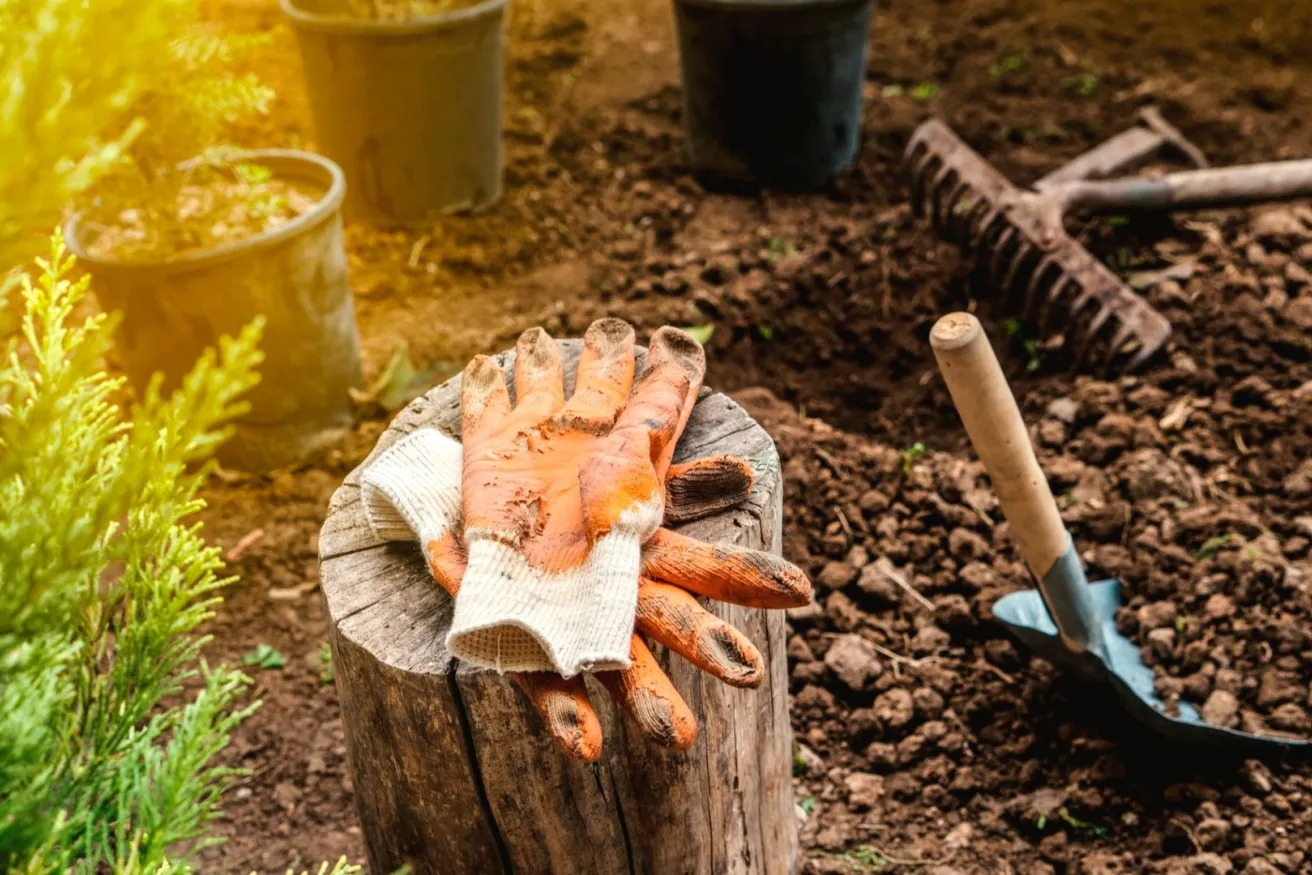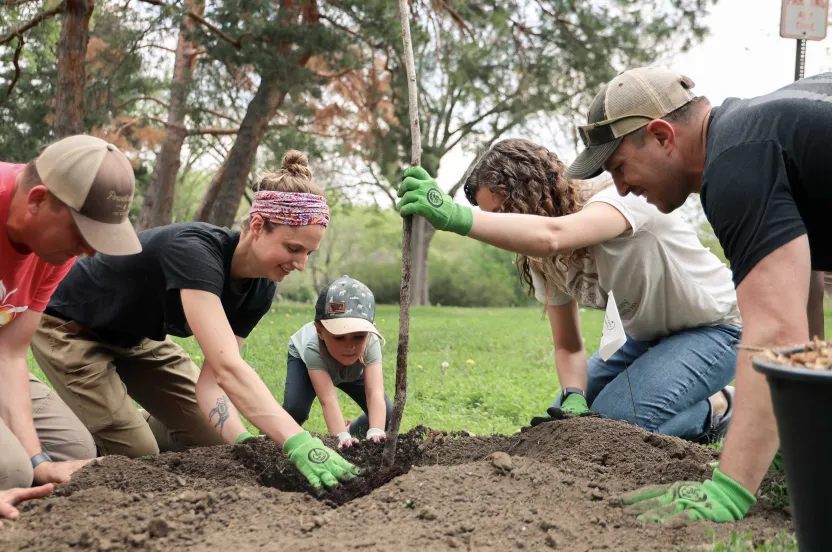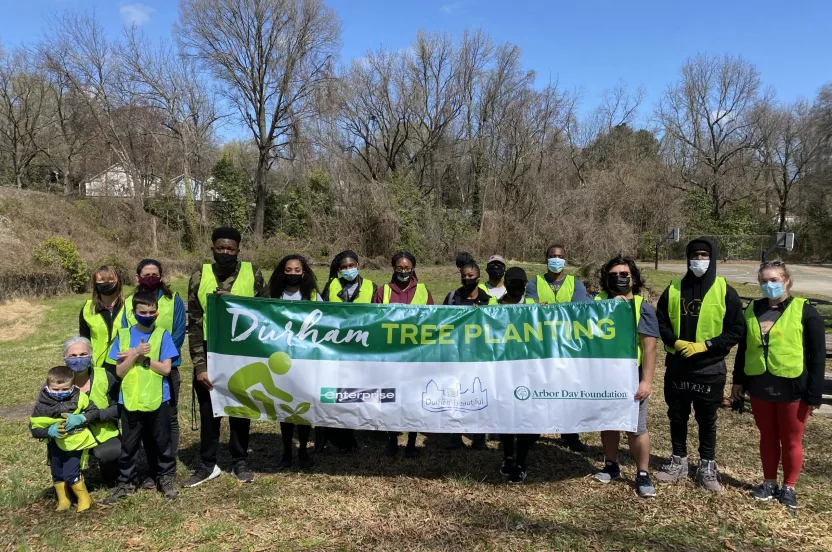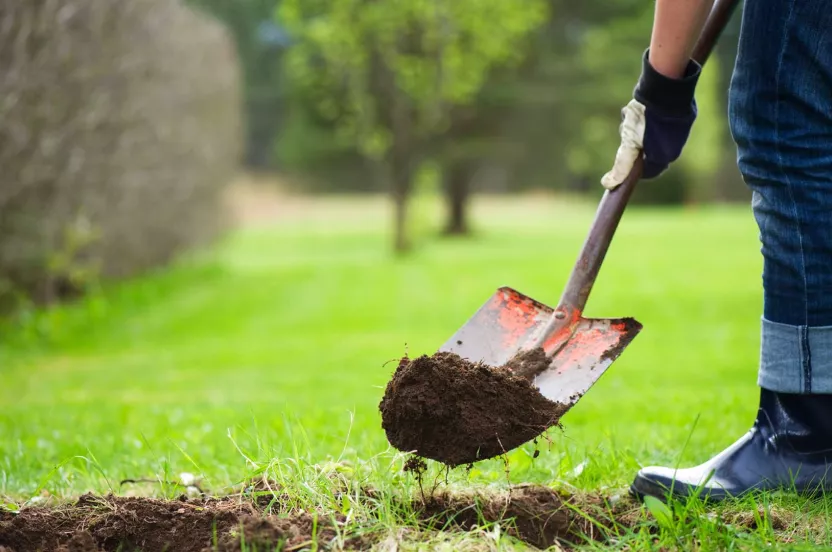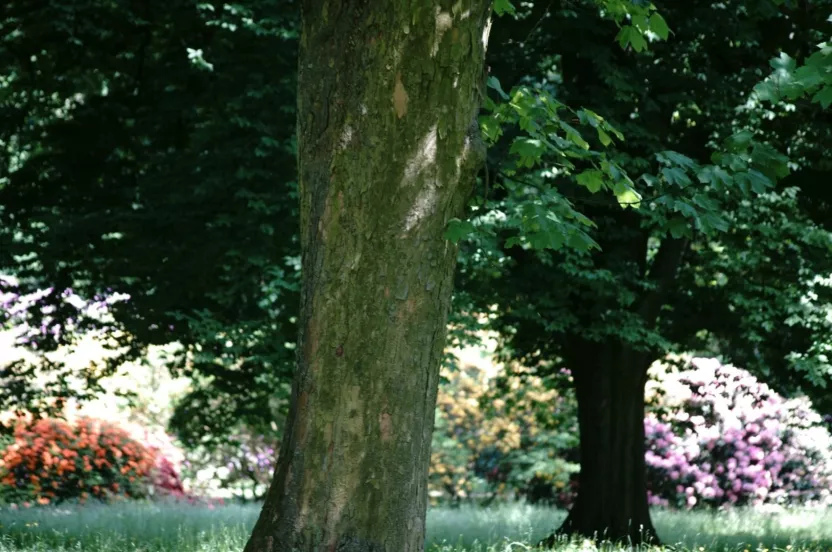Give before midnight on July 31 to double your impact where trees need us most. CHOOSE A PROJECT
Did you know planting a tree is one of the easiest and most powerful things you can do to have a positive impact on the environment? It's true. Trees clean the air, prevent rainwater runoff, help you save energy and even combat global warming. And they're a snap to plant! No horticultural degree required.
From the single homeowner in Nebraska planting a maple in her backyard to the 250 Comcast employees volunteering in communities devastated by hurricanes, fires and Emerald Ash Borer infestation by planting hundreds of trees on Comcast Cares Day (the nation’s largest single-day corporate volunteer event), people nationwide are getting their tree on. Here are 9 reasons why you should join them.
Trees fight climate change
Wish you could do more than recycling and reducing your carbon footprint to combat climate change? Trees have you covered. Through photosynthesis, trees absorb harmful carbon dioxide, removing and storing the carbon and releasing oxygen back into the air.
Trees clean the air and help you breathe
Trees don't just absorb CO2. They also absorb odors and pollutants like nitrogen oxides, ammonia, sulfur dioxide and ozone. It’s estimated that one tree can absorb nearly 10 pounds of polluted air each year and release 260 pounds of oxygen.
Trees prevent soil erosion and rainwater runoff
During heavy rains, water runoff finds its way to streams, lakes and wetlands, creating the potential for flooding. It also picks up and carries pollutants along the way. The EPA and the Center for Watershed Protection are recognizing the importance of trees in managing runoff. Leaf canopies help buffer the falling rain and their roots hold the soil in place, encouraging the water to seep into the ground rather than run off.
Planting trees is easy
Gardening can be intimidating for newbies because there are so many variables. Which plants and flowers should you put next to each other and which should you separate? Which bloom in the summer and which bloom in the fall? When you’re dealing with trees, there’s none of that. Just choose a spot in your yard and you’re good to go.
Watch Ask an Arborist: How do I Plant Bare-root Trees?
You’ll save money
Trees conserve energy in summer and winter, providing shade from the hot summer sun and shelter from cold winter winds. With trees standing between you and the elements, you’ll spend less on your energy bill to heat and cool your home.
Trees increase your home’s value
Studies of comparable homes with and without trees show that, if you have trees in your yard, your home’s value increases by up to 15 percent. It’s all about curb appeal, and trees make your home and yard more beautiful.
You’ll attract birds (and critters)
Trees provide nesting sites, food and shelter for your bird friends. Hang a feeder in one of the branches and enjoy the birdsong all year long. Squirrels love to make their homes in trees, too, and watching their antics is a great way to spend a lazy summer afternoon.
Trees are good for your mental and physical health
A view of trees in urban areas has been proven to reduce stress, anxiety and even the crime rate. Tree-filled gardens on hospital grounds speed healing in hospital patients.
You'll be giving your descendants a gift
Trees can live hundreds of years, so when you plant one, you're giving a gift to your children and grandchildren. It's a symbol of your commitment to the environment and the beauty of the world around you that will live on far beyond your own lifetime.
